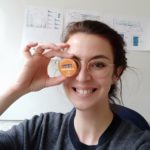Lien vers Pubmed [PMID] – 20927390
Lien DOI – 10.1371/journal.pone.0013042e13042
PLoS One 2010 Sep; 5(9):
PCR amplification of minute quantities of degraded DNA for ancient DNA research, forensic analyses, wildlife studies and ultrasensitive diagnostics is often hampered by contamination problems. The extent of these problems is inversely related to DNA concentration and target fragment size and concern (i) sample contamination, (ii) laboratory surface contamination, (iii) carry-over contamination, and (iv) contamination of reagents.Here we performed a quantitative evaluation of current decontamination methods for these last three sources of contamination, and developed a new procedure to eliminate contaminating DNA contained in PCR reagents. We observed that most current decontamination methods are either not efficient enough to degrade short contaminating DNA molecules, rendered inefficient by the reagents themselves, or interfere with the PCR when used at doses high enough to eliminate these molecules. We also show that efficient reagent decontamination can be achieved by using a combination of treatments adapted to different reagent categories. Our procedure involves γ- and UV-irradiation and treatment with a mutant recombinant heat-labile double-strand specific DNase from the Antarctic shrimp Pandalus borealis. Optimal performance of these treatments is achieved in narrow experimental conditions that have been precisely analyzed and defined herein.There is not a single decontamination method valid for all possible contamination sources occurring in PCR reagents and in the molecular biology laboratory and most common decontamination methods are not efficient enough to decontaminate short DNA fragments of low concentration. We developed a versatile multistrategy decontamination procedure for PCR reagents. We demonstrate that this procedure allows efficient reagent decontamination while preserving the efficiency of PCR amplification of minute quantities of DNA.

